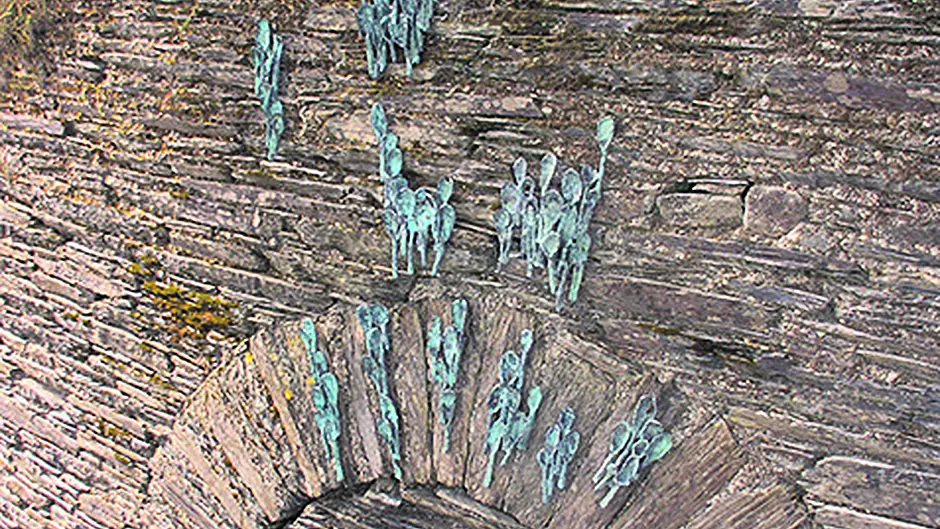A year-long art project on the history of the 110 girls from Skibbereen who were transported to Australia during the Great Famine, has now resulted in the completion of a bronze sculpture in Skibbereen.
A YEAR-long art project on the history of the 110 girls from Skibbereen who were transported to Australia during the Great Famine, has now resulted in the completion of a bronze sculpture in Skibbereen. The Uillinn West Cork Arts Centre, in partnership with the HSE, commissioned Scottish artist Toma McCullim to complete the project.
Toma delivered tours, talks, and art workshops that investigated the lives of the 110 girls, their journey to Australia, and today’s diaspora.
And last week, the stunning art installation featuring 110 spoons, cast in bronze, were launched at the walls of an old Famine workhouse in the hospital grounds.
Each spoon – cast by the staff and residents working and living at Skibbereen Hospital – represents the lives of each of the girls, who were aged between 14 and 18, when they were sent from the workhouse in Skibbereen to Australia, under Earl Grey’s Famine Orphan Scheme.
The girls did not necessarily have to be orphans to ‘qualify’ for the scheme, but were, for one reason or another during those turbulent times, no longer living with their families. The young women recruited for the scheme were expected to work as domestic servants on arrival in Australia, until they reached an age, deemed appropriate to marry a suitor.
The installation has the potential to become a place to visit, especially as 10,000 members of the diaspora in Australia can claim ancestral links to these young women.
The project is funded by the West Cork Municipal District’s Creative Community Scheme and Cork County Council’s Creative Communities, as well as the Cork Kerry Community Healthcare and the National Lottery.










